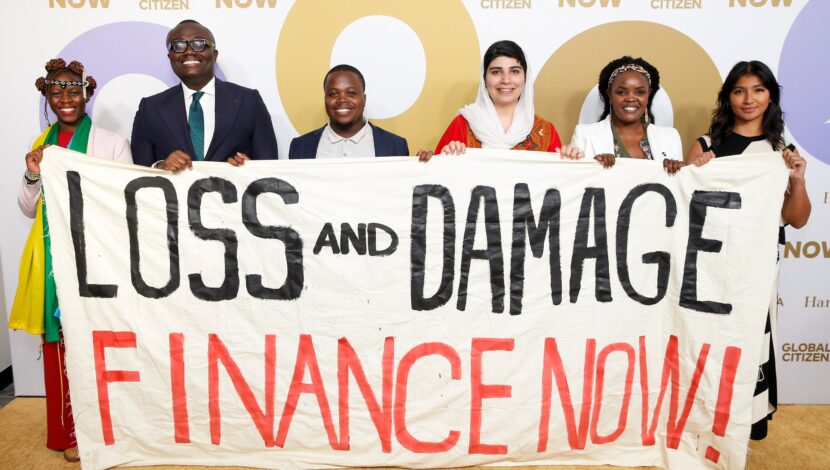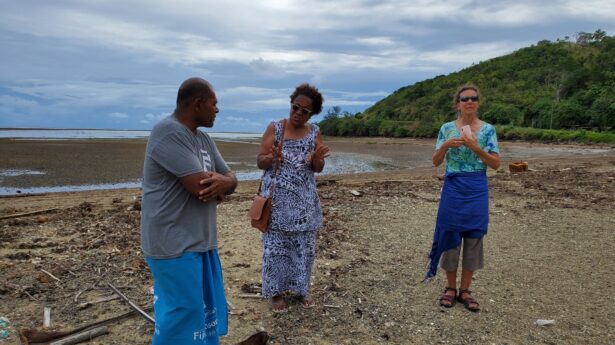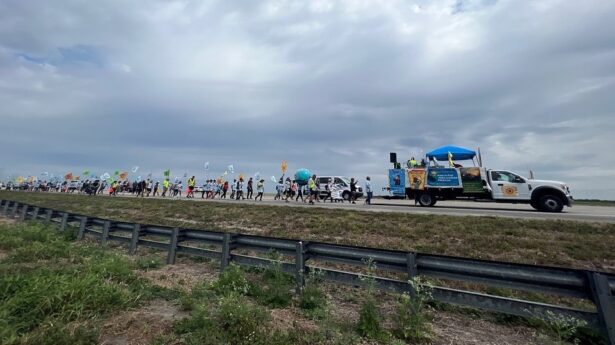The Unitarian Universalist Service Committee advances human rights through grassroots collaborations.
Three Key Lessons COP27’s Loss And Damage Fund Must Implement To Create Global Climate Justice

By UUSC Staff on May 12, 2023
At last year’s 27th United Nations Climate Change Conference of Parties, COP27, the assembled nations took a massive step towards achieving environmental justice by creating a historic “loss and damage fund” to resource nations experiencing climate disasters. Importantly, correcting historical inequities must consider the lessons of similar past initiatives.
UUSC and several of its allies—Churches Action in Relief and Development (CARD), Youth Power in Social Action (YPSA), Helvetas, and the Climate Justice Resilience Fund (CJRF)—joined together to offer a brief advising this new fund on key strategies it can deploy to ensure that nations already dealing with the impacts of climate change can best benefit from the initiative.
Here are some lessons from that brief to set the new loss and damage fund up for success.
Climate Action Must Support Both Sides of the Migration Decision
People living in environments that are threatened or harmed by climate disasters often don’t have a choice as to what to do. Some are forced out of their homes due to their complete and total destruction; others who may wish to leave are forced to stay because they lack the ability to successfully move to a new region, as was recently the case in Bangladesh. Often, people in migration live in temporary settings that are physically and socially unsafe. The COP27 Loss and Damage Fund must account for the complex realities of climate migration and support communities whether they stay or go.
Climate Action Must Support Families Over the Long Term
Climate disasters are rarely just one-off events. In a CJRF-funded project in Malawi, for instance, residents experiencing tropical storms initially decided to stay in their communities despite the risks of doing so and then changed their minds after a particularly brutal tropical storm in early 2023. Adaptability is vital, and the new fund must be flexible and consider that the decisions of impacted people may change with new circumstances and adapt the support it provides accordingly. Moreover, critical support cannot end simply with relocation assistance—communities must also be assisted as they settle into their new homes and learn what they need in order to thrive there.
Climate Action Must Be Based On Communities’ Needs
Communities in the Global South that often bear the brunt of climate change have, in many, if not most, cases, also suffered historical injustices, which are compounded by the climate disasters they currently face. As such, members of these communities are the best authority on what their families need, and the COP27 Loss and Damage Fund must listen to and act upon those needs. Projects in Malawi and the Fijian island of Rabi exemplify this imperative. The residents of both areas had specific needs—in Malawi, for soil-stabilized bricks, and in Fiji, for community tanks for rainwater harvesting—which were informed by their histories of being subject to colonialism. By supporting the specific needs asked for by the communities, our coalition was able to help both communities begin the journey to sustainable habitation.
If COP27 leads with these values and takes the lessons of past climate intervention projects into account, it has the opportunity to create real, tangible progress on global climate justice. The COP27 Loss and Damage Fund’s initiatives must be guided by the principles that communities know what is best for them and that a wide range of interventions may be necessary in order to get communities the support they need and deserve. Giving impacted communities a seat at the table is a crucial first step.
Image Credit: Loss and Damage Youth Coalition

